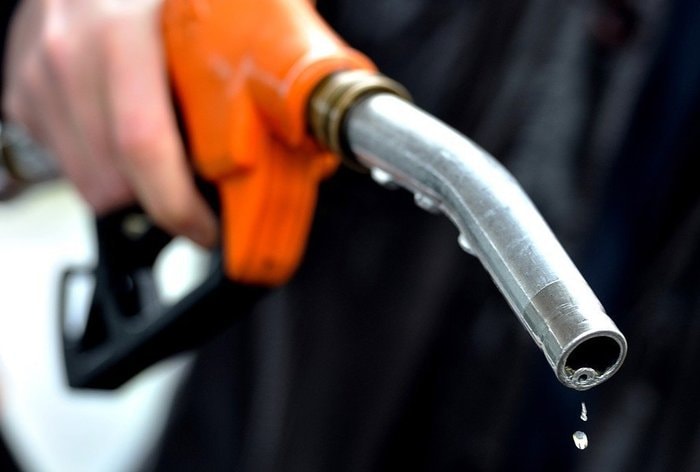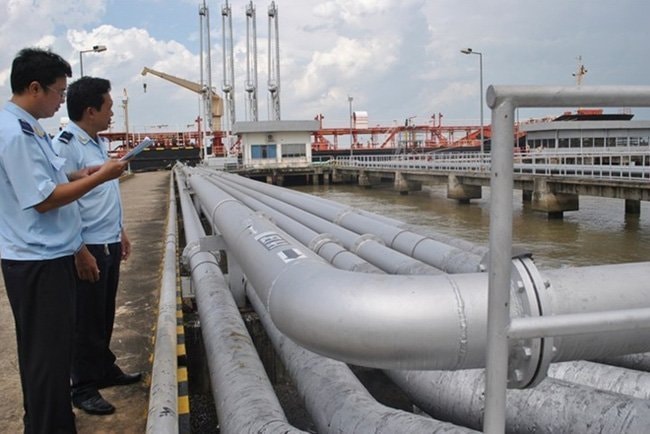Massive import of Korean gasoline and oil: Concerns about monopoly and price pressure
Vietnamese enterprises imported nearly 100% of gasoline from South Korea after the tax rate was reduced to 10%. Meanwhile, the amount of gasoline imported from the traditional ASEAN market with a tax rate of 20% plummeted. The fact that South Korea is gradually becoming a monopoly market for gasoline imports from Vietnam is raising concerns about the risk of price pressure and consumer losses.
Korean gasoline "dethrones"
From January 1, 2016, the import tax on Korean gasoline under the Vietnam-Korea Trade Agreement is 10%. Meanwhile, the import tax on gasoline from traditional ASEAN markets (Singapore, Thailand...) is still 20%.
Before the Agreement with Korea, gasoline imported into Vietnam was mainly from the ASEAN market. When the import tax on gasoline from Korea was 10%, many forecasts were made that businesses would compete to import gasoline from Korea to this market to enjoy the incentives.
That prediction has now come true. As soon as the import tax on gasoline from Korea was 10%, there was a race to import gasoline from Korea because there was a difference of up to 10% compared to importing from ASEAN.
Specifically, data from the General Department of Customs shows that in 2016, Vietnam's total gasoline import turnover was about 1.25 billion USD, of which 75% was imported from South Korea.
In 2017, gasoline imports from South Korea continued to increase rapidly. In the first 9 months of 2017, 96-97% of gasoline imports came from this market.
Thus, South Korea is now almost a monopoly market for imported gasoline from Vietnam. This figure is estimated to increase to 100% in the near future.
 |
| Gasoline imports from South Korea are increasing. |
Faced with the above situation, the General Department of Customs has proposed to reduce the import tax on gasoline from ASEAN from 20% to 12% to ensure a reasonable difference between the ASEAN and Korean markets, reducing the monopoly of the Korean market.
This also aims to create a level playing field for price competition among import markets, contributing to diversifying import sources and ensuring the practicality of the 20% tariff on gasoline.
According to the General Department of Customs, this plan will contribute to increasing budget revenue and helping to bring gasoline prices to a level consistent with actual transactions.
However, this proposal of the General Department of Customs did not receive support from the functional unit of the Ministry of Finance.
According to the investigation, the Tax Policy Department (Ministry of Finance) has opposed the reduction of gasoline import tax from 20% to 12% as proposed by the General Department of Customs because of concerns about revenue loss. In addition, this Department believes that it is necessary to continue maintaining the 20% tax rate to encourage the purchase of Dung Quat and Nghi Son gasoline.
Meanwhile, the General Department of Customs said that this plan increases revenue, not reduces it, and also does not affect domestic gasoline consumption.
Some places have 10% tax, some places have 20%: Worried about heavy budget losses
97% of gasoline products are imported from Korea, which means that Vietnam only collects 10% of gasoline import tax, and the 20% tax rate applied to ASEAN has no practical application. Because most businesses no longer import gasoline from the ASEAN market.
The proof is that in 2016, the General Department of Customs' budget revenue from petroleum was short by 10,000 billion VND.
 |
| Revenue from petroleum decreased sharply. |
According to experts, the large difference in gasoline import tax rates between Korea and other regions may cause Vietnamese enterprises to have to accept more unfavorable terms and prices than other import partners. At the same time and for the same type of gasoline, Vietnamese enterprises may have to buy at a higher price than other partners and compared to the general market level.
Mr. Phan The Rue - Chairman of the Vietnam Petroleum Association said that this concern is well-founded. Because with the advantage of the import tax on gasoline from Korea being half of the import tax from other regions, even if having to buy at a high price, the cost of importing gasoline from Korea is still cheaper, and businesses still benefit more.
However, to enjoy the 10% import tax on gasoline, businesses must obtain a Korean certificate of origin (C/O). This, according to the leader of the Petroleum Association, is “not simple”.
“It is very difficult for small import enterprises to get that C/O, it has to be the big ones. If small enterprises want to get a 10% C/O, they will definitely have to pay a high price,” said Mr. Phan The Rue.
In addition, given the huge tax gap between Korea and ASEAN mentioned above, some experts also warn of fraudulent origin (C/O) to enjoy incentives. This means that enterprises do not actually import from Korea but through some intermediary market, but still find ways to "lobby" for Korean C/O to enjoy the 10% tax incentive.
“Big companies that are familiar with the market can get a C/O without any lobbying. But small companies that are not familiar with the market, customers, or doing business with each other have to go through all sorts of ways to get a C/O with a 10% tax rate. Even so, businesses still benefit more than importing from ASEAN with a 20% tax,” said Mr. Phan The Rue.
"If they do this, the state budget will lose a lot of money," Mr. Rue warned.
According to VNN
| RELATED NEWS |
|---|

